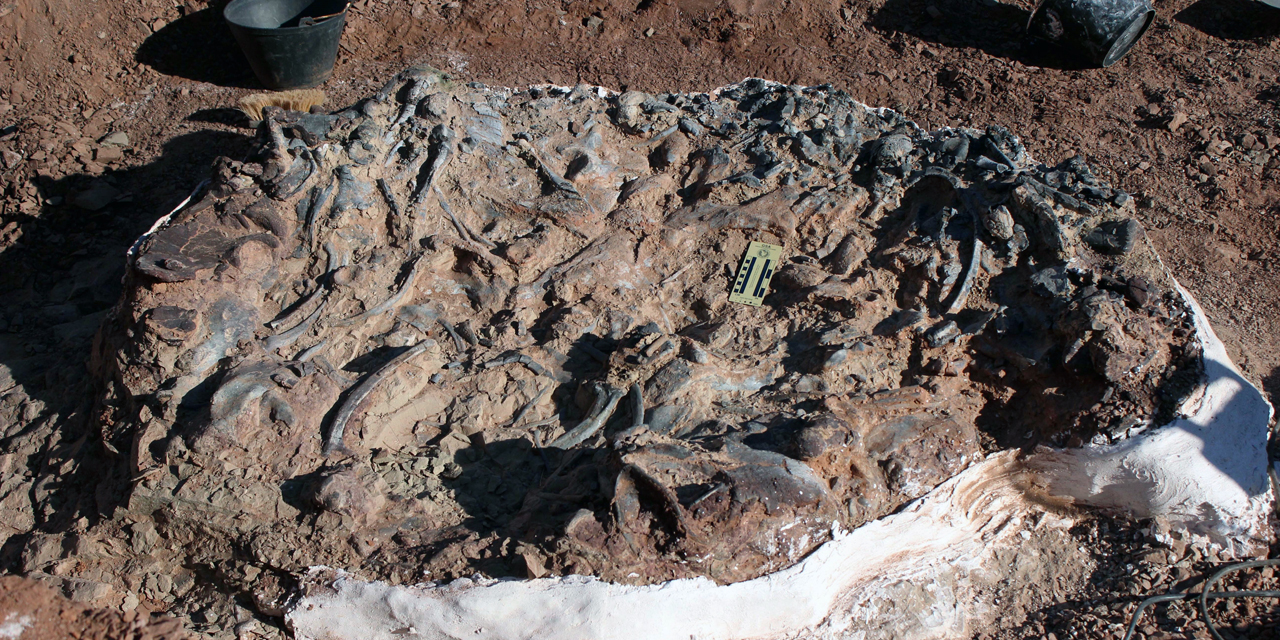A 220-million-year-old dinosaur cemetery has been discovered in western Argentina, with remains of a dozen animals, Argentine researchers said Wednesday.
"There are almost ten different individuals, it's a mass of bones, there's practically no sediment, it's like they've made a well and they've filled it with It's very impressive, "said Argentinian paleontologist Ricardo Martinez. According to the scientist of the Institute and Museum of Natural Sciences (IMCN) of the University of San Juan, "these fossils belong to the Ischigualasto basin, which corresponds to 220 million years, an era of which we know little fauna" .
A discovery of "double importance"
This discovery is doubly important because there are at least seven or eight individuals of dicynodonts, the ancestors of mammals, the size of an ox, and other archosaurs (reptiles) that we do not know yet. who may be dinosaurs or an ancestor of great crocodiles, "Ricardo Martinez explained.
This "bone bed" is between one and two meters in diameter and the same depth. To explain the causes of such an accumulation of bones, scientists speculate that "there was a time of great drought and that there was water, a small lake where the herbivores came en masse to drink, and as the water evaporated, the animals weakened and died on the spot. "
A country rich in dinosaur fossils
Argentina has many fossils from three periods, the Triassic, Jurassic and Cretaceous Mesozoic Era. They belong to animals different from those found in the northern hemisphere. The most important dinosaur fossil deposits are found in Patagonia (south), the regions of La Rioja and San Juan (west) and in the province of Salta (north).
The cemetery was discovered in September 2018 in the province of San Juan (1,100 km west of Buenos Aires), said Cecilia Apaldetti, also a researcher at IMCN and a member of the National Council of Science and Technology (Conicet ).

